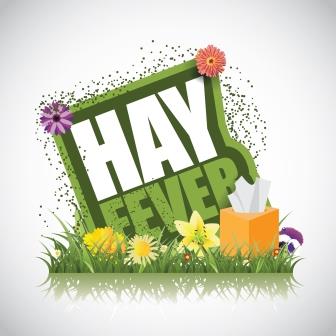
Despite the fact we are all spending a lot more time indoors than we used to, the seasonal sniffles, that is hay fever is still upon us.
Hay fever was once something more associated with childhood, maybe even something you grew out of. But more and more adults get hay fever symptoms for the first time, perhaps as late as middle-age – signs suggest this will continue to be the case over the coming decade.
Moving to a different area, pollution and even being deficient in Vitamin D, can all be factors why you might suddenly suffer. Hormonal changes, and also ageing is a factor – as our immune systems may not be as robust as when we were younger.
Atopy Gene
If you suffer from other conditions like asthma, rhinitis and eczema – then this means that you carry the ‘Atopy’ gene, so you are predisposed to allergic conditions and developing hay fever at some point in your life becomes more likely.
So, why does Hay Fever happen?
Essentially our body’s immune system thinks that pollen particles are harmful to us, so it makes allergen antibodies to fight the attack. Unfortunately, this process releases chemicals throughout our airways, eyes and nose. The resulting symptoms correspond – breathing difficulties, watery eyes, runny nose and sneezing, to name a few.
Pollen Seasons
There are different types of pollen throughout the season that affect sufferers. Around 95% of people with hay fever will have it triggered through grass pollen (May-August). Weed pollen will impact around 20% of people (June-September) and tree pollen is implicated in 25% of cases (February-June).
You may find it helpful to use a pollen forecast map, especially if you are new to hay fever. It may help you to understand why your symptoms are higher one day than another and what types of pollen are a problem for you:
https://www.metoffice.gov.uk/weather/warnings-and-advice/seasonal-advice/pollen-forecast#?
Treatments
Antihistamines, eye drops and steroid nasal sprays are the typical pharmaceutical treatments. Nasal salt water sprays are also effective at clearing pollen from the nose. A swipe of Vaseline under the nose to trap pollen before it enters the nasal passages can be effective. Many people swear by eating local honey (1 tablespoon per day) before the season starts. Marshmallow Root and Nettle Extract are herbal remedies that have offered some relief.
If your symptoms are causing you problems, or you are a first-time sufferer your GP or Pharmacist should be able to point you in the right direction for safe treatments to try.
Useful websites:
www.allergyuk.org/information-and-advice/conditions-and-symptoms/11-hay-fever-allergic-rhinitis
www.nhs.uk/conditions/hay-fever/
Posted: 26/05/2020
Related Category: Health












